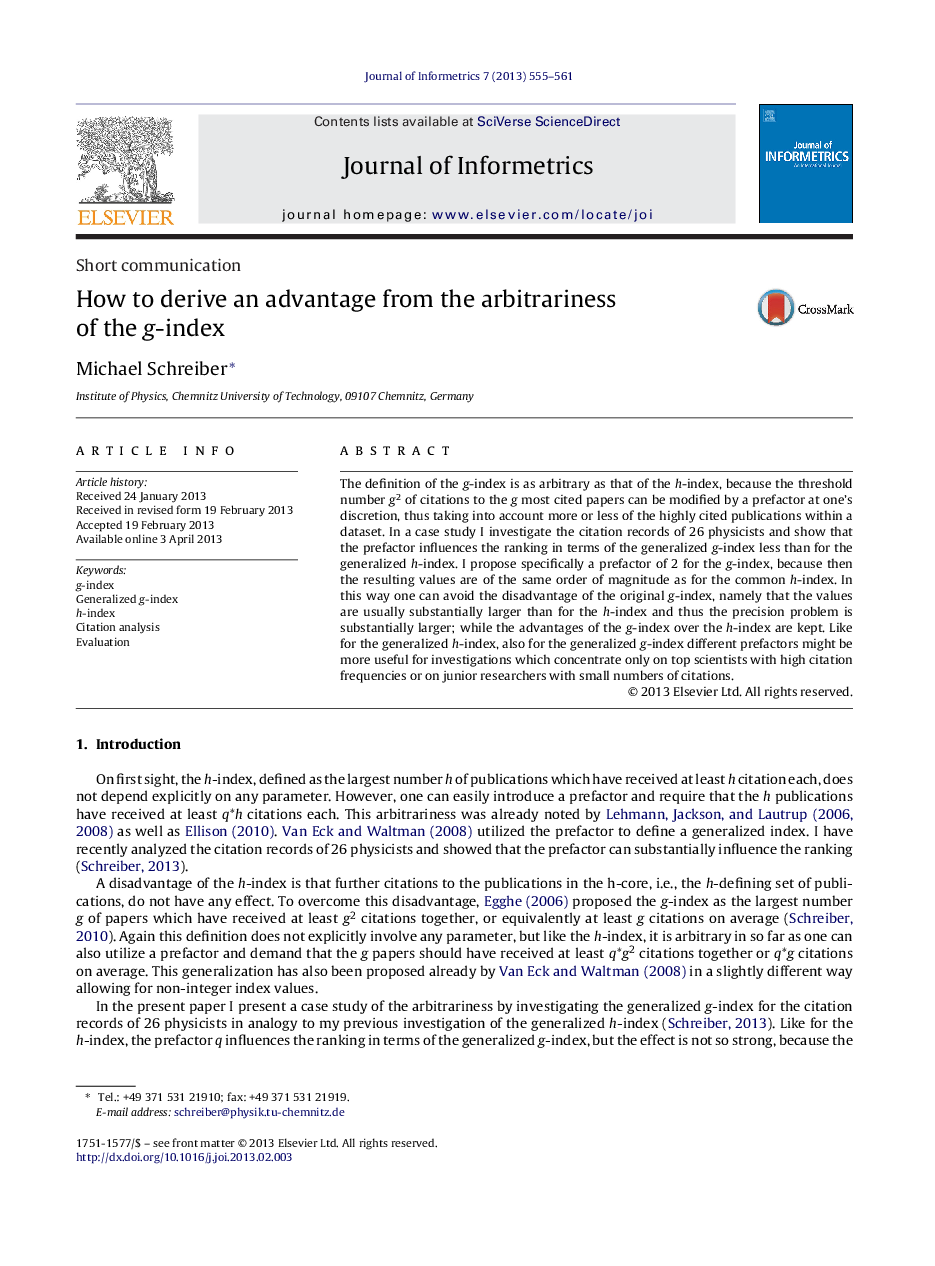| Article ID | Journal | Published Year | Pages | File Type |
|---|---|---|---|---|
| 523251 | Journal of Informetrics | 2013 | 7 Pages |
The definition of the g-index is as arbitrary as that of the h-index, because the threshold number g2 of citations to the g most cited papers can be modified by a prefactor at one's discretion, thus taking into account more or less of the highly cited publications within a dataset. In a case study I investigate the citation records of 26 physicists and show that the prefactor influences the ranking in terms of the generalized g-index less than for the generalized h-index. I propose specifically a prefactor of 2 for the g-index, because then the resulting values are of the same order of magnitude as for the common h-index. In this way one can avoid the disadvantage of the original g-index, namely that the values are usually substantially larger than for the h-index and thus the precision problem is substantially larger; while the advantages of the g-index over the h-index are kept. Like for the generalized h-index, also for the generalized g-index different prefactors might be more useful for investigations which concentrate only on top scientists with high citation frequencies or on junior researchers with small numbers of citations.
